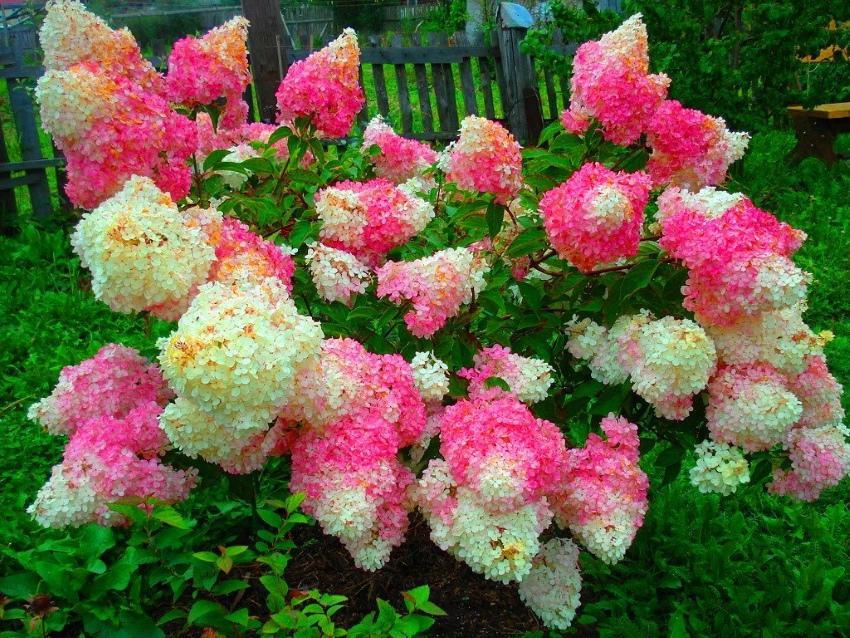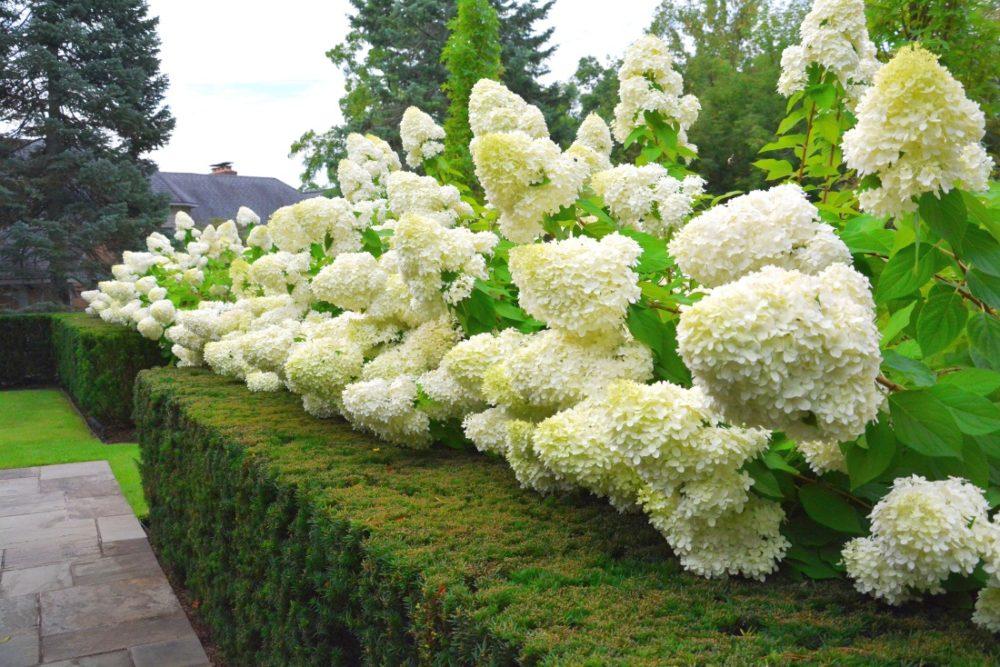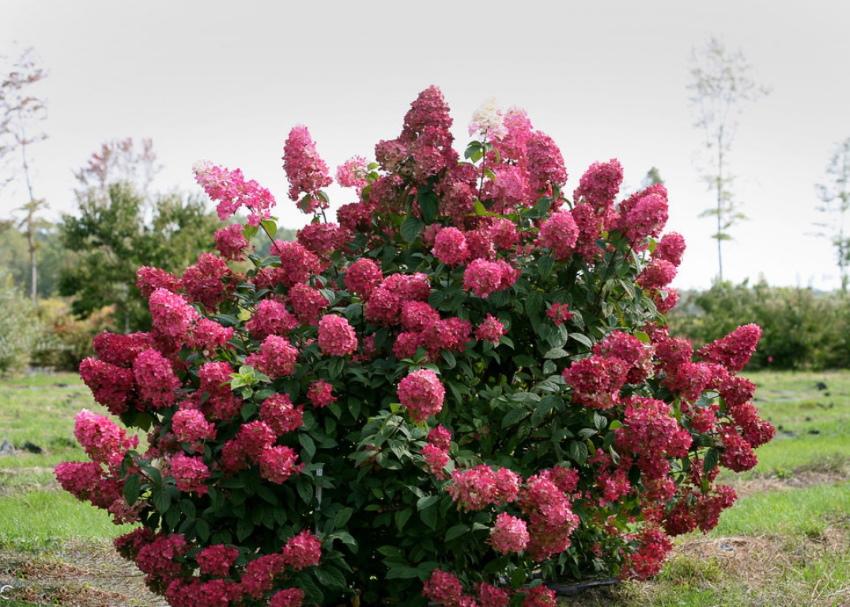When hydrangea paniculata blooms - in anticipation of a miracle
 Lush multi-colored panicles of hydrangea have long been loved by gardeners and this plant can often be found in flower beds. It is the chic large inflorescences that are the main pride of the culture, so everyone is interested to know when panicle hydrangea blooms. It's one thing if you grow it from seed. Then it is quite clear that a seedling needs a lot of time to grow and get stronger. But most of us still give preference to adult seedlings. By planting them on the site, we hope to see at least a trial flowering this season. How justified are these expectations?
Lush multi-colored panicles of hydrangea have long been loved by gardeners and this plant can often be found in flower beds. It is the chic large inflorescences that are the main pride of the culture, so everyone is interested to know when panicle hydrangea blooms. It's one thing if you grow it from seed. Then it is quite clear that a seedling needs a lot of time to grow and get stronger. But most of us still give preference to adult seedlings. By planting them on the site, we hope to see at least a trial flowering this season. How justified are these expectations?
When hydrangea paniculata blooms

As for the timing of flowering, the hydrangea can be called a summer - autumn culture. The first buds bloom on it in late June - early July and bloom lasts until the very cold.
In the southern regions, the bush can stand in panicles for the whole September, it all depends on how warm the autumn is. Accordingly, in the middle and central lane, the hydrangea fades earlier, in August.
Why an adult hydrangea doesn't bloom
 In general, the shrub is unpretentious, it feels good both in the open field and as a pot culture. But for flowering, he needs favorable conditions and proper care. Otherwise, you will only have to admire the green foliage.
In general, the shrub is unpretentious, it feels good both in the open field and as a pot culture. But for flowering, he needs favorable conditions and proper care. Otherwise, you will only have to admire the green foliage.
If an adult bush stubbornly does not want to bloom, the reason for this may be:
- Excess fertilizers in the soil, namely potassium-phosphate fertilizers, which may even lead to freezing of the shrub.
- Freezing of flower buds on a bush that is not covered (or poorly covered) for the winter.
- Strong annual pruning hydrangea, which blooms on last year's growth.
So that the shrub annually pleases with an abundance of large panicles, plant it in a well-lit place, but with diffused light. Many bright varieties fade from the excess of the sun and shrink in inflorescences. Feed the plant with nitrogen in the spring, add potash preparations in the summer, and replace them with phosphate in the fall. Just do not frequent, so as not to overfeed. Do not forget to water the hydrangea regularly, and then it will delight you with its buds.